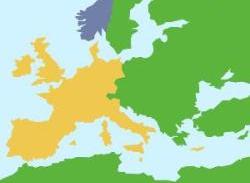 The interconnectors between the UK and Europe are often the cause of grumbles and accusations within the energy industry as they are seen to be responsible for a flow out in the search of high continental prices rather than a flow in with cheap and abundant European supplies. But the reality is somewhat different.
The interconnectors between the UK and Europe are often the cause of grumbles and accusations within the energy industry as they are seen to be responsible for a flow out in the search of high continental prices rather than a flow in with cheap and abundant European supplies. But the reality is somewhat different.
From 2008 to 2012 the UK imported nearly four times more electricity than it exported, with imports eight times greater than exports in 2012, according to the government’s Digest of UK energy Statistics (DUKES).
And Steve Holliday, Chief Executive of National Grid, believes that rather than connecting the country to a market exposed to Russian gas and encouraging profiteering, interconnectors are a force for good.
Holliday has called for the UK’s electricity interconnectors to be doubled to 8 by 2020 in order to deliver a:
“£1bn price saving … for an investment of £3bn”
In effect an interconnector is ‘simply’ extending the UK transmission network to expand beyond national boundaries with transmission cables running along the seabed into France, Ireland and Holland. In total four of these interconnectors already exist, of which two are owned by National Grid, and are used to both import and export electricity.
Already these links total 4,000MW or 5% of the UKs generation capacity and so their influence is clear, indeed National Grid is already working on what will be the world’s longest interconnector between the UK and Norway with the aim of accessing the Norwegians rich source of hydroelectric renewable energy.
Indeed there is a lot of sense in interconnectors if used properly and connected to self-sufficient and stable regimes like in Norway. The problem however comes when they are used not for indigenous market purposes but for optimising profit and the danger is ever present of increased ‘interconnectedness’ to the global complex and exposure to Russian gas ransoms.
However, given the coming capacity crunch, as generation sources are taken off line with no replacements in train, any new interconnector into an energy rich, stable state would go a significant way to allaying the worst impact of the soon to be dearth of UK generation capacity
With Holliday saying:
“Prices will always be lower in continental Europe, for structural reasons. This wouldn’t be so much about increasing security of supply – it’s about lowering the cost of energy.”
Not many would argue with that.
